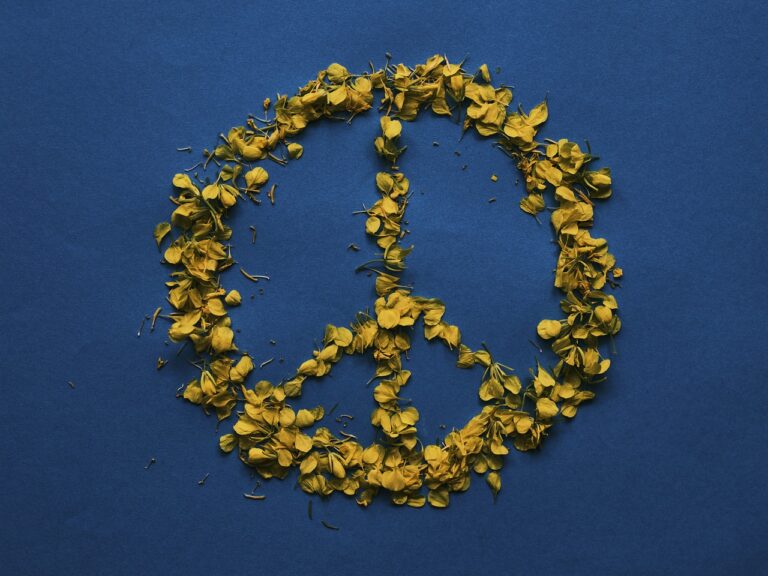There is an old saying that the world is a big place, yet it can be a small village. This is especially true when you consider how connected we are today through social media and other technologies. The question then becomes not just if there will be peace in the world but when peace can be achieved.
World peace is a long-heard ideal and a goal of many political leaders and for many generations. It has been the topic of discussion in all countries, religions, philosophies, and ideologies throughout history. World peace has long been the ultimate goal of many who want a better world for themselves and their children.
Table of Contents
The idea of world peace is often an empty political slogan that is nearly impossible to achieve
If you’re looking for a quick and easy answer, the simple fact remains that world peace is nearly impossible to achieve. As with many lofty goals, it’s not so much that people don’t want it but more that they cannot make it happen.
The biggest hurdle toward establishing lasting global peace has been humanity itself. Human beings have been killing each other since the beginning of time. Any attempt at organizing everyone into one group in which everyone gets along would require an extraordinary amount of effort from every single person on Earth—which will not happen anytime soon.
In some cases, politicians use this idea as a political tool. For example, when someone runs for election or re-election as president or prime minister, they will often promise peace if elected because most people want nothing more than this outcome for themselves and their families.
The act makes perfect sense on some level. After all, no one wants war or conflict between nations or groups within those nations—thus making peace seem like a viable solution if only we can get there.
There are examples of regions that have had periods of peace for significant periods
The Roman Empire is one of the largest and richest empires in history. It is often credited with being a period of relative stability throughout much of Europe and North Africa. Similarly, much praise has been given to Britain’s Pax Britannica for its role in promoting international cooperation during the 19th century.
For some experts on this topic, these examples suggest that peace is achievable through international agreements between regional powers and superpowers.
Some believe world peace is achievable with the right political, economic, and military factors
There are many factors at play when it comes to achieving world peace. These include political, economic, and military factors. However, the political factors are the most important for achieving world peace since they include democracy and human rights.
If all nations were democratic, then the citizens would be able to elect a leader to handle disputes with other countries peacefully instead of engaging in war. In addition, they would have access to education to understand why violence should not be used as an option when resolving conflicts.
Economic growth is also important. It provides financial stability for all nations so they can afford trade agreements with each other instead of using force or boycotting products from other countries due to trade disputes. This can create trade tension resulting in conflict.
Finally, there’s military power which plays only a minor role but still influences foreign policy decisions made by leaders today.
Some believe conflicts and tensions between countries, groups, and individuals are inevitable
Many people believe conflicts and tensions will always exist between countries, groups, and individuals. They point out that conflicts are part of human nature and history, geography, politics, and other aspects of life on Earth.
They argue that if you look closely at any situation in which there is conflict or tension between two parties, you’ll almost always find a common denominator: the perception that one party is being treated unfairly by another or by society at large. This can cause resentment until it reaches a boiling point where someone lashes out violently against their perceived oppressor(s).
World peace may not be achievable in our lifetimes, but we should still work toward it
You may think that world peace is a long-term goal, not one that will be reached in our lifetimes. But we should still work toward it.
It’s not going to be easy, but it can be done. Here are the steps that need to be taken.
- the world needs to come together as one people and stop killing each other;
- our leaders need to stop fighting over material possessions and focus on what matters most: our health and happiness as a human race;
- we must stop the reckless destruction of our planet and start taking care of it like we would our bodies;
- we must stop exploiting the poor and vulnerable and start helping them;
- we must stop being greedy and selfish and start sharing what we have with those who have less than us;
- we must stop taking advantage of each other and start treating each other with dignity and respect.
Is world peace achievable?
Achieving world peace will never be easy, but there are many steps we can take on the path toward this lofty goal. To mitigate the underlying causes of conflict and suffering will require a combined effort by those around the globe.
Ultimately, though, the real solution comes down to us as individuals—the choices we make in our everyday lives carry immense power beyond their scale.
Read also: Are western sanctions against Russia really working and helping stop the war?












